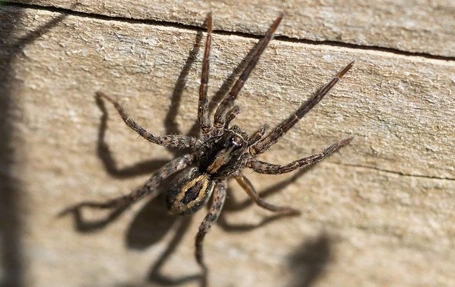
Spiders

About
What are spiders?
With thousands of different spiders living worldwide, it is no wonder we find these critters in our California yards and homes. Spiders are outdoor pests that live in large numbers all around us; they are reclusive by nature and remain mostly hidden. Homeowners usually don’t even know they are around until environmental conditions allow their populations to increase and they take over our indoor and outdoor spaces.
Spiders are arachnids; they are not insects. They are also nocturnal predators, spending their days resting and their nights hunting. A spider’s physical features include eight legs, many eyes, two body segments (joined by a narrow tube called a pedicel), fangs, and a lack of wings and antennae. Every spider produces silk, but not all spiders build webs; those that don’t build webs create burrows in the ground to use as a resting area.
Are spiders dangerous?
The great majority of the spiders that people come across daily, whether in California or somewhere else in the country, are harmless. A spider’s appearance tends to make people think they are more dangerous than they are. Take, for example, the wolf spider; they are a large, hairy, fast-moving spider, but when it comes down to it, they aren’t any more dangerous to people than a tiny house spider.
While most spiders aren’t dangerous, some are. In our region, we have the black widow spider that we need to be careful around. The black widow spider has venom potent enough to affect people and create health issues. A black widow spider’s venom attacks the nervous system and causes symptoms like muscle cramps, fever, chills, nausea, and chest and stomach pains. You should take bites from these spiders seriously, and the symptoms should be managed by a pest professional.
Why do I have a spider problem?
The reason that spiders have become a problem in your home or yard is pretty straightforward; it is because they have plenty of prey (insects) available for them to hunt.
It is common for spiders to move inside when following their prey. The more spiders you have living in your yard, the more likely they will eventually move inside and become a problem in your home.
Insects and spiders move into homes through openings they discover in its exterior like cracks in the foundation, gaps around windows and doors, vents, and chimneys.
Where will I find spiders?
Spiders are comfortable living both outside and inside our structures (homes, garages, and sheds). Outside, they live in gardens, landscaping, shrubs, and bushes. They also like to gather around trash cans, compost piles, and outdoor light fixtures.
When they move into our homes, they hang out in various places but typically choose quiet areas. Spiders do not like to be in the limelight. Space under furniture, the bottom of closets and cabinets, and behind wall trim provide excellent hiding spots for spiders. We also regularly see spider activity in the corners of walls and windows, attics, and basements.
If you find spiders in your home, you need to find and eliminate both the spiders themselves and the insects they prey on.
How do I get rid of spiders?
Don’t try to tackle spider problems on your own; partner with the local pest control experts at ProServ Pest Management. Our professionals train continuously on the latest pest control products, methods, and technologies. We will come to your property, identify your specific pest problem and provide the effective services needed to eliminate spiders and other household pests.
We design our pest control solutions to meet the unique needs of our customers located in Sacramento and surrounding cities. To learn more, give us a call today!
How can I prevent spiders in the future?
In addition to our home pest control and commercial pest control services, protect your property from pests with the following prevention tips:
- The best way to prevent problems with spiders is to control their food sources. If their prey is limited, they will move.
- Regularly walk around and inspect the outside of your house, repairing and cracks you find in the foundation or exterior walls.
- Repair worn door trim or weatherstripping.
- Remove standing water from your property that will attract both insects and spiders.
- Maintain gardens on your property and keep shrubs and bushes cut back from your home’s exterior.
- Avoid attracting a lot of insects to your property by keeping lids on trash cans and recycling bins.